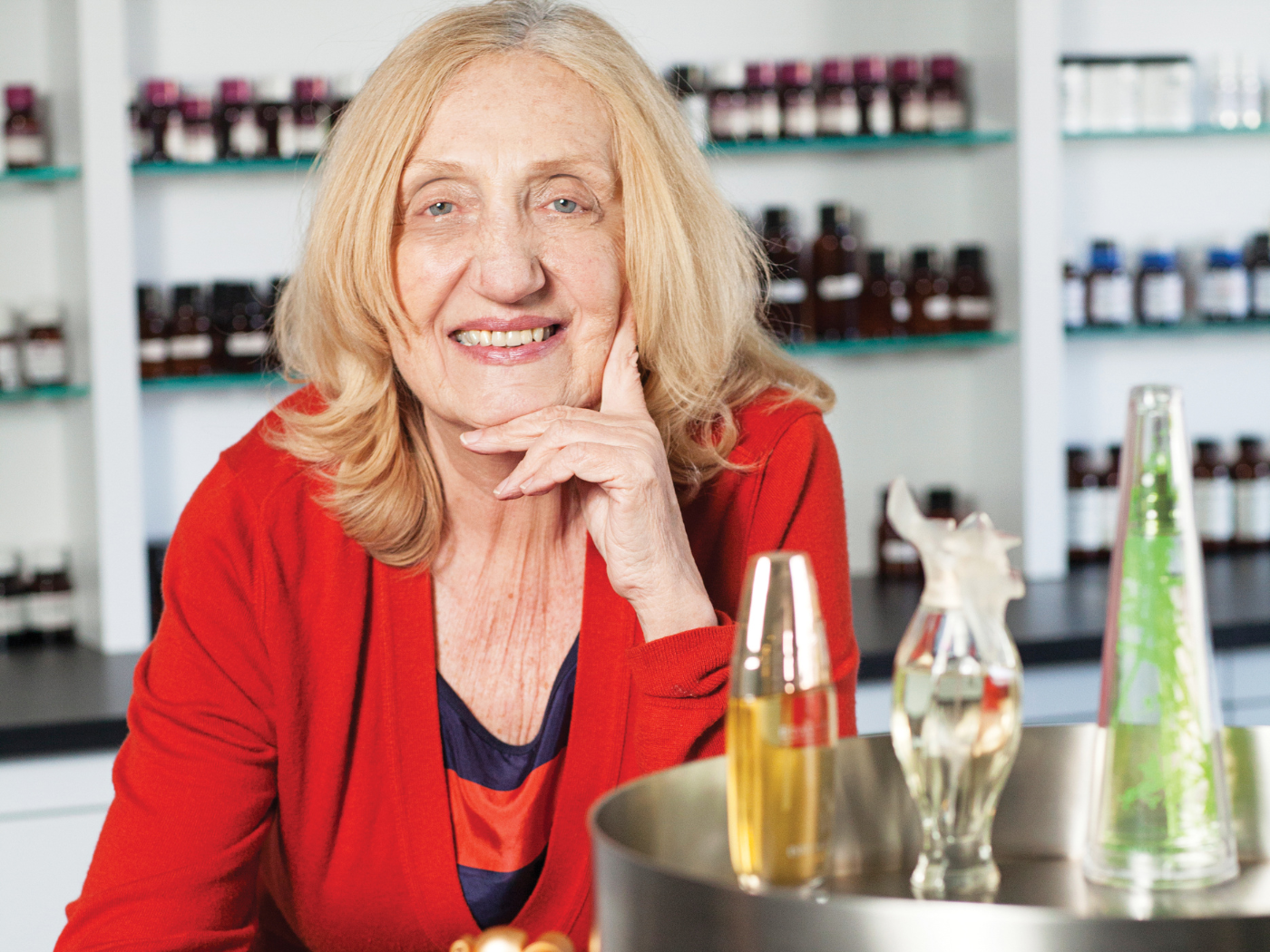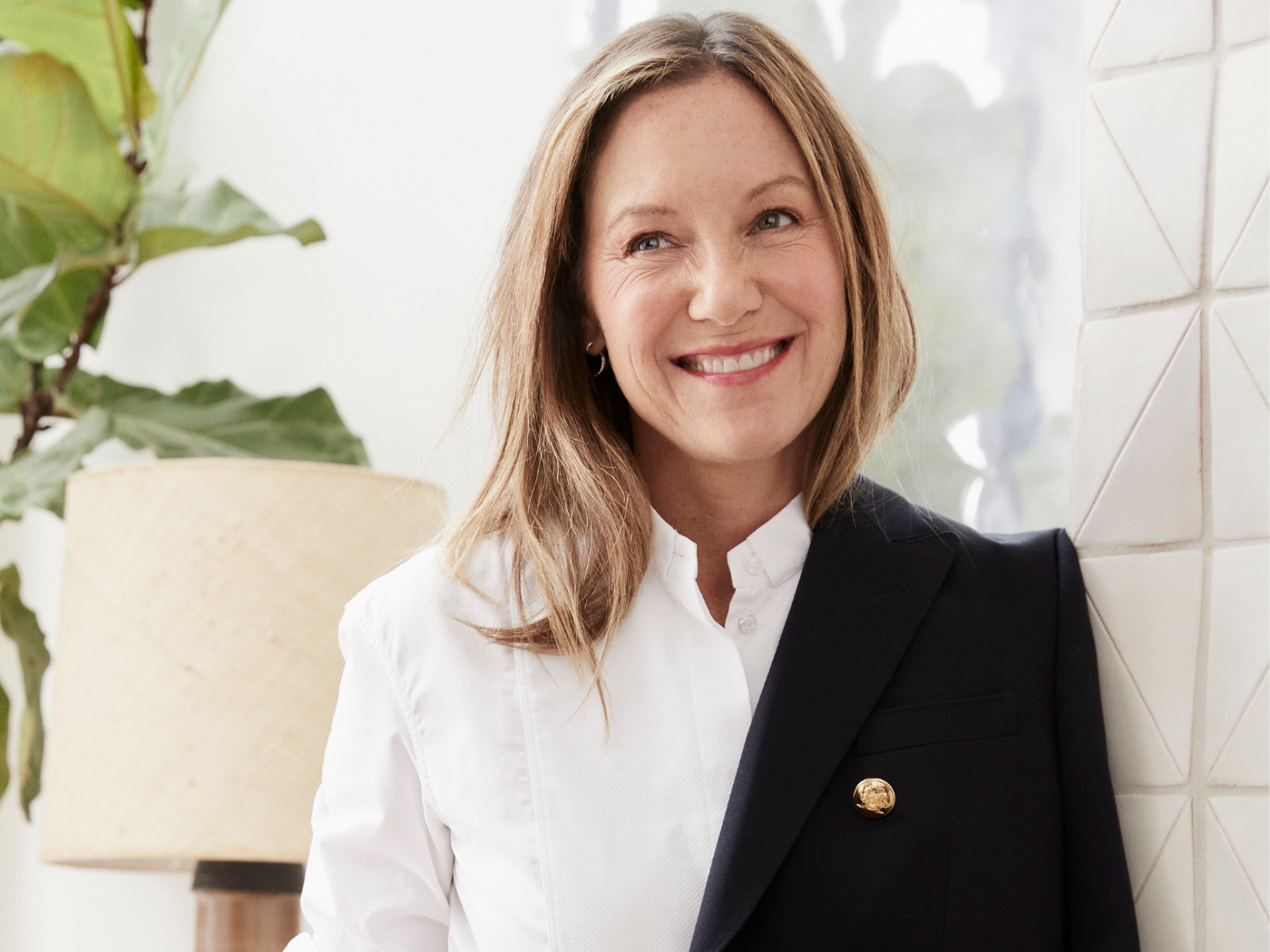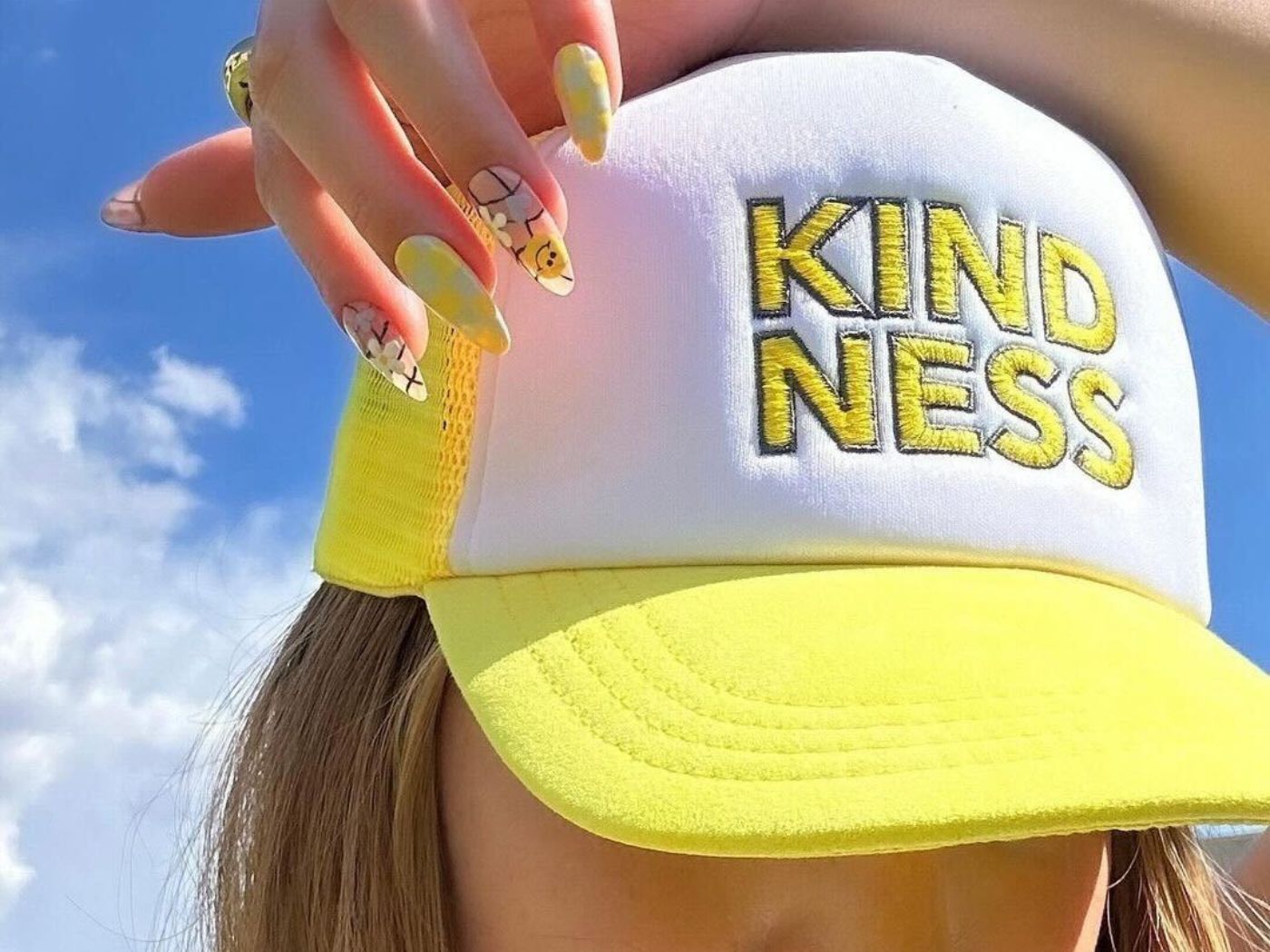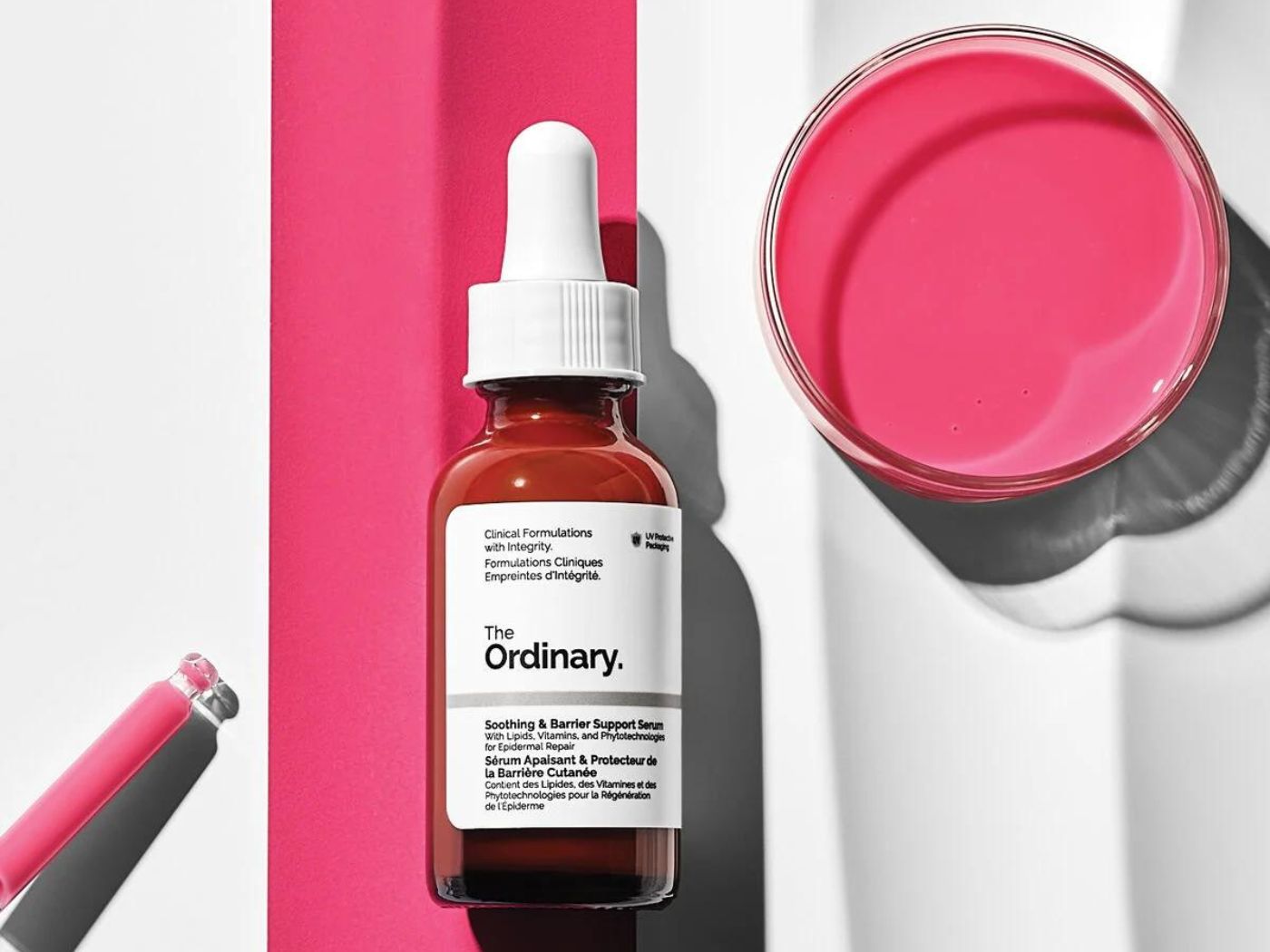I grew up in Williamsburg, Brooklyn, long before it became the home of the hipster, and before the streets were filled with every luxury brand known to man. It was a working-class neighborhood. Everyone living there was a first- or second-generation immigrant, and they all worked in the factories that lined the river. Across that river, we could see all the fabulous buildings of Manhattan. And for most of us growing up in that neighborhood, our goal was to work in Manhattan.
All of my education was at city schools: I went to public grammar school, junior high, high school, and college. When I graduated from college, I needed a job and got one at Givaudan, the fragrance and flavor house. I had no plans to work in the beauty industry, certainly not in the fragrance industry. They hired me because I spoke French; they had just brought a perfumer over from France and his English was not as good as it could have been.
In college, I double majored in chemistry and history, but I studied French throughout my schooling. Simone de Beauvoir, Albert Camus, and Jean-Paul Sartre. I loved those writers and periods of French history, and I felt like I needed to read their books in the original language.
So, I was hired as a technician for this French perfumer, but at Givaudan they let us train on all the different things that went on in the lab, so I learned how to make aerosols, bars of soap, lipstick, everything that has fragrance in it. I found it amazing that a company would spend that much time and take that much care of its employees, encouraging them to learn everything about the world of fragrance, from creation to incorporation to finished product. I stayed at Givaudan for two and a half years, but then I got pregnant, and at that time companies didn’t encourage you to work in the lab during your pregnancy.
Still, I met two of my biggest mentors there: Jean Paul Baude, the French perfumer (whose English did improve), and Victor DiGiacomo, who was an American perfumer and later the chief perfumer for Givaudan in North America. Both had sons who also went into the industry. Perfumery has always been this kind of family thing. Usually, people go into perfumery because they have a relative in the business. I did not. But I did have generous mentors.
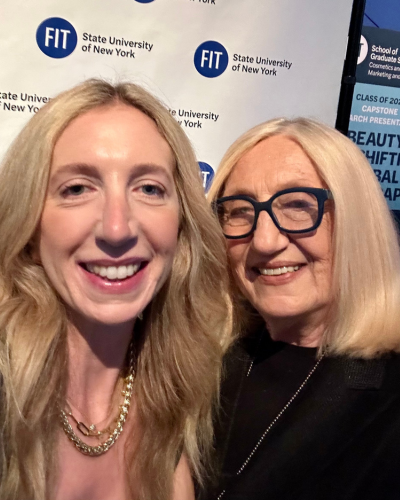
Once I had a young child, I gravitated right back to the fragrance industry. At that time, a lot of fragrance businesses were moving to New Jersey. I wanted to stay in New York and found a place to work in Tribeca, which eventually became part of Monsanto. And, once again, I had fantastic mentors. So, by the time I left Monsanto, I was already working as a junior perfumer, where I worked on clients briefs to create fragrances for a wide variety of categories, from dish detergents to fine fragrances, from bar soaps to air fresheners.
While I loved being a perfumer, after a certain period, I wanted to have more control over what I was doing. So, I looked for roles that were more managerial. And as I moved from company to company, I found them. In my last job, I was vice president of fragrance for a flavor and fragrance company, Technology Flavors & Fragrances (TFF), where I wasn’t working on the bench so much. Instead, I was managing people who were doing that. But I liked that, because I like to have my fingers in many different parts of the business.
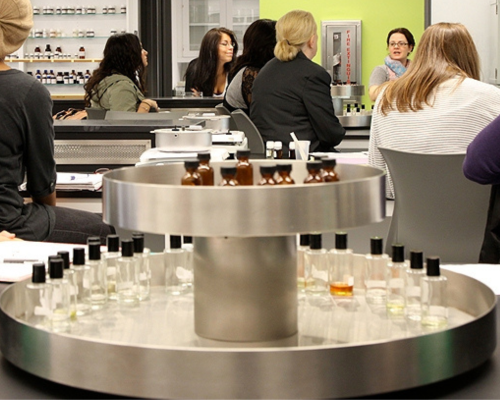
I was very lucky that my job at TFF allowed me to help build the fragrance lab at FIT. It was the brainchild of Annette Green, who was the Founder and then president of the Fragrance Foundation. And it is the only fragrance laboratory or fragrance studio on a college campus in the United States. Once I helped build the lab, they needed someone to teach the courses — to develop the courses, actually — so I would spend one day a week teaching fragrance at FIT while I worked my full-time job at TFF.
I want to say that I believe the best educators are lifelong learners. Teaching has always been a pleasure and a privilege for me. Eventually I realized that this was where I wanted to be.
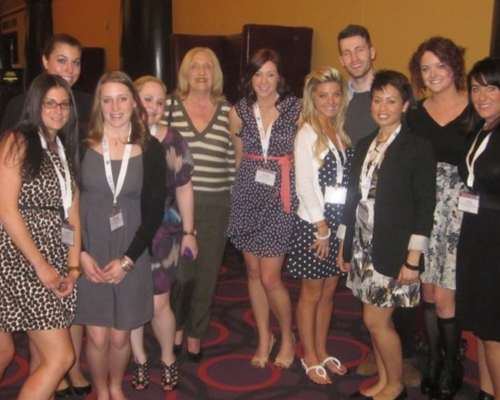
The industry has changed a lot since I first started teaching at FIT. First, there’s the Internet. That’s made the most profound change on retail since we wrote the program. You still have department stores and boutiques, but you also have this whole other animal. And you have Amazon, which has become a huge e-tailer for all the beauty categories. You have direct-to-consumer. You have people buying fragrances before even smelling them, based on storytelling alone. I never thought that could happen, but it does happen, and very successfully.
I think the biggest way to help people follow this career path successfully is to give them a lot of very tangible skills: financial fluency, product creation and development skill, marketing, storytelling. Digital marketing was not even a dream when I started. And who even knew what an influencer was? And we’ve just kind of brushed the surface on what we can do with AI. So, it’s a really great time for anyone who wants to get into beauty education because you need to teach everything there is to know about beauty, but you also need to teach how to distribute and sell products.
Right now, I’m working on another milestone. When you come to FIT, the Cosmetics and Fragrance marketing program is a two-year baccalaureate program. We haven’t had an associate’s degree. So, I’m writing the associate degree program for Cosmetics and Fragrance. This means that FIT will now be the educational home of an AAS degree, a BS degree, and an MPS degree in Cosmetics and Fragrance. FIT is a wonderful institution because it deals with very unusual, creative subjects and allows people who have a passion for those subjects to learn and succeed.
I wouldn’t say I have a protégé because I treat all of my students equally, and a lot of them have gone on to achieve great success in the industry. My goal is always to make students successful in the industry they are passionate about and encourage them to become great global citizens. I love that.
Be sure to celebrate this year’s Achiever Award Honorees with 1,000-plus beauty industry executives at CEW’s annual awards luncheon taking place April 25, 2024, in Manhattan. For table and ticket sales, visit cew.org.
